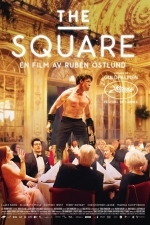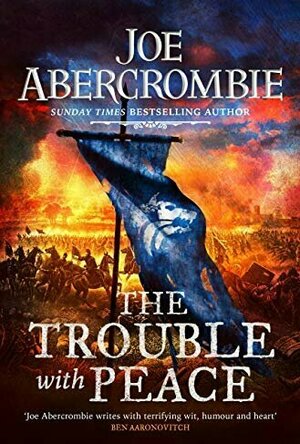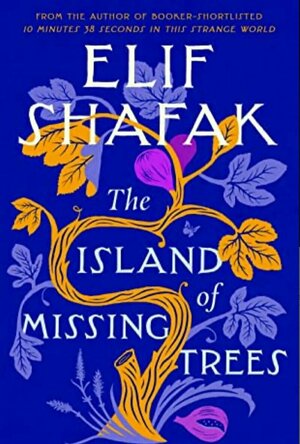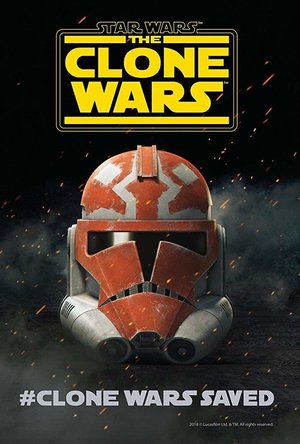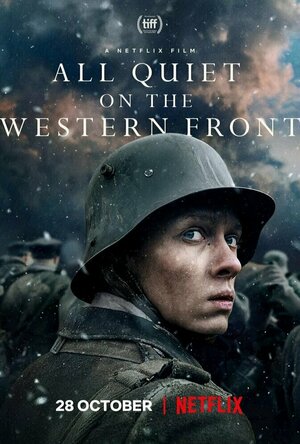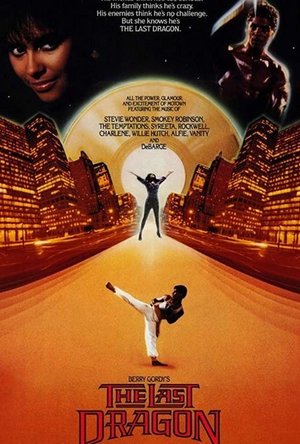Search
Search results
Phillip McSween (751 KP) rated The Square (2017) in Movies
Aug 29, 2020
The Movie That Never Ends
Artsy-fartsy movies are very hit or miss for me. Artsy-fartsy movies about art are almost always going to be a no. Enter The Square, a movie about an art curator who is preparing to launch his next exhibit called…The Square. I wish I could simply tell you to just not watch the movie, but I need to tell you why so here goes…
Acting: 10
How phenomenal is Elisabeth Moss? I appreciate the roles she takes on and I appreciate the obvious time and energy she puts into each. While she is supporting here, I certainly felt the most impact from her role. Sure Claes Bang was solid in the lead role as Christian, but this movie would have been damn near unbearable without Moss. The acting definitely didn’t hinder the success of this movie.
Beginning: 4
Characters: 9
Cinematography/Visuals: 9
For all of its flaws, the movie is at the very least gorgeous. I loved the dark and ominous tones throughout that represented a certain foreshadowing. Bright colors and shadows are played with perfectly. Director Ruben Ostlund does a magnificent job of creating an off-putting effect that casts a cloud over the movie (in a good way).
Conflict: 5
Entertainment Value: 3
From the beginning of this movie to its lackluster conclusion, I was just bored throughout. Like really bored. Like “When does this end? Oh my God, it’s almost 2 1/2 hours!” bored. Moss was great, but she wasn’t enough to save a work of art that is so boring and unmoving. Snoozefest.
Memorability: 3
Sure the Human Monkey Scene stands out as something to remember, but even that ultimately became annoying after watching three minutes of it. Nothing stood out in the entire 142 minutes of The Square. It suffers from no edification or value overall.
Pace: 5
Plot: 4
Resolution: 2
Overall: 54
Rule of Thumb: If you’re going to make a movie that’s well over two hours, you have to keep people interested right out of the gates. Otherwise, what’s really the point? That’s what I found myself asking every second of The Square. Not recommended in the least.
Acting: 10
How phenomenal is Elisabeth Moss? I appreciate the roles she takes on and I appreciate the obvious time and energy she puts into each. While she is supporting here, I certainly felt the most impact from her role. Sure Claes Bang was solid in the lead role as Christian, but this movie would have been damn near unbearable without Moss. The acting definitely didn’t hinder the success of this movie.
Beginning: 4
Characters: 9
Cinematography/Visuals: 9
For all of its flaws, the movie is at the very least gorgeous. I loved the dark and ominous tones throughout that represented a certain foreshadowing. Bright colors and shadows are played with perfectly. Director Ruben Ostlund does a magnificent job of creating an off-putting effect that casts a cloud over the movie (in a good way).
Conflict: 5
Entertainment Value: 3
From the beginning of this movie to its lackluster conclusion, I was just bored throughout. Like really bored. Like “When does this end? Oh my God, it’s almost 2 1/2 hours!” bored. Moss was great, but she wasn’t enough to save a work of art that is so boring and unmoving. Snoozefest.
Memorability: 3
Sure the Human Monkey Scene stands out as something to remember, but even that ultimately became annoying after watching three minutes of it. Nothing stood out in the entire 142 minutes of The Square. It suffers from no edification or value overall.
Pace: 5
Plot: 4
Resolution: 2
Overall: 54
Rule of Thumb: If you’re going to make a movie that’s well over two hours, you have to keep people interested right out of the gates. Otherwise, what’s really the point? That’s what I found myself asking every second of The Square. Not recommended in the least.
Ross (3284 KP) rated The Trouble With Peace in Books
Sep 28, 2020
Superb dialogue, plotting and war
I received an advance copy of this book from netgalley and the publishers in exchange for an honest review.
This is the second book in Abercrombie's second proper trilogy in the world of The First Law. I will admit to having issues with the first book, A Little Hatred, but they were mainly a result of the book building on from the previous trilogy (and the standalone books) but being a significant amount of time later. I had felt the characters had been left as "so-and-so's son/daughter" with minimal introduction otherwise.
Those issues are now long-forgotten, as in this book all characters receive enough attention to embed themselves and find their voices (no longer are Vick and Savine the same in my head, likewise Leo and Orso, although I have to admit that Clover and Broad still cross over in my mind).
The plot follows some gentle political and social manipulations, both in the capital Adua, and also in the North. Things quickly develop into a much stronger and very possible uprising against the throne, and more importantly against the corrupt financier and magician controlling the throne.
There are some truly superb action sequences in this book, where the action flows seamlessly from one character's PoV to another, almost as if watching a film, where the camera follows an arrow and watches the intended target until they stab at someone, who the camera then follows. This allows the action to unfold across both sides of the conflict and give the story from multiple angles. One of these scenes was one of the best told battle scenes I think I have ever read.
The plot is strong, the characters similarly, and the dialogue and narration is Abercrombie at his best. The crossing, double-crossing and triple-crossing is a joy to read. It is rare in a "grimdark" book to see one of the nastiest characters getting their comeuppance but at the end this is delivered in a fairly shocking manner.
This may just be Abercrombie's best book yet, in my humble opinion.
This is the second book in Abercrombie's second proper trilogy in the world of The First Law. I will admit to having issues with the first book, A Little Hatred, but they were mainly a result of the book building on from the previous trilogy (and the standalone books) but being a significant amount of time later. I had felt the characters had been left as "so-and-so's son/daughter" with minimal introduction otherwise.
Those issues are now long-forgotten, as in this book all characters receive enough attention to embed themselves and find their voices (no longer are Vick and Savine the same in my head, likewise Leo and Orso, although I have to admit that Clover and Broad still cross over in my mind).
The plot follows some gentle political and social manipulations, both in the capital Adua, and also in the North. Things quickly develop into a much stronger and very possible uprising against the throne, and more importantly against the corrupt financier and magician controlling the throne.
There are some truly superb action sequences in this book, where the action flows seamlessly from one character's PoV to another, almost as if watching a film, where the camera follows an arrow and watches the intended target until they stab at someone, who the camera then follows. This allows the action to unfold across both sides of the conflict and give the story from multiple angles. One of these scenes was one of the best told battle scenes I think I have ever read.
The plot is strong, the characters similarly, and the dialogue and narration is Abercrombie at his best. The crossing, double-crossing and triple-crossing is a joy to read. It is rare in a "grimdark" book to see one of the nastiest characters getting their comeuppance but at the end this is delivered in a fairly shocking manner.
This may just be Abercrombie's best book yet, in my humble opinion.

The World in 2017
News and Business
App
The World in 2017 app contains The Economist’s annual collection of detailed, numerate and...
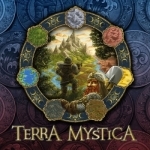
Terra Mystica
Games
App
Short Summary: ≈≈≈≈≈≈≈≈≈≈≈≈≈ In a world of fantasy, called Terra Mystica,...
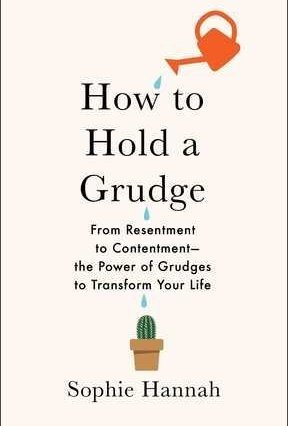
How to Hold a Grudge: From Resentment to Contentment—The Power of Grudges to Transform Your Life
Book
The first and only comprehensive examination of the universal but widely misunderstood practice of...

Bonnie and Clyde: Radioactive
Clark Hays and Kathleen McFall
Book
THE REVENGE OF BONNIE AND CLYDE Saving the future by exploding the past It's January 1945, six...
thriller Bonnie & Clyde Bonnie and Clyde adult fiction
ClareR (6062 KP) rated The Island of Missing Trees in Books
Sep 28, 2021
How come this is only the first book I’ve read by Elif Shafak?! This is a book full of heart, feeling and imagination - it’s just beautiful. The Island of Missing Trees has taught me far more about what happened in Cyprus and the war/ dispute between Cypriots and the Turkish invasion.
There’s a feel of Romeo and Juliet about this: a Greek-Cypriot boy (Kostas), and a Turkish-Cypriot girl (Defne) fall in love - something forbidden in the climate they’re living in. They meet in secret in a tavern that has a fig tree growing through the centre of it. This is a significant tree - it’s one of the main narrators of this story. And what a story it has to tell. It talks about the natural world in which it lives, the humans that it comes into contact with, the conflict it lives through, the sorrow, the loss.
This book describes the fracturing of a country, people forced to leave the country they love. Kostas is one of these people. He moves to London to live with his uncle, but he never seems to feel as though he fits in in there. He does follow his passion though, and becomes an expert in Natural History: the trees and plants around him, around the world, and in his native Cyprus. Which is what brings him and Defne back together, and reunites them with the fig tree.
The three of them return to London together, all cast adrift from their homeland.
Later, Kostas and Defne’s daughter carries this feeling of not quite belonging as well, but her father doesn’t seem to be able to give her what she needs. She knows nothing of her roots: she has no contact with her Cypriot family - until the day her aunt arrives.
The way that Shafak writes about loss and the pain of loss is visceral, but there’s a great deal of hope and the promise of healing. This book just has it all. I was completely enveloped in this story, and I’ve been left with a pressing need to read everything else that Elif Shafak has written!
Many thanks to Jellybooks and Penguin for providing me with a copy of this book to read.
There’s a feel of Romeo and Juliet about this: a Greek-Cypriot boy (Kostas), and a Turkish-Cypriot girl (Defne) fall in love - something forbidden in the climate they’re living in. They meet in secret in a tavern that has a fig tree growing through the centre of it. This is a significant tree - it’s one of the main narrators of this story. And what a story it has to tell. It talks about the natural world in which it lives, the humans that it comes into contact with, the conflict it lives through, the sorrow, the loss.
This book describes the fracturing of a country, people forced to leave the country they love. Kostas is one of these people. He moves to London to live with his uncle, but he never seems to feel as though he fits in in there. He does follow his passion though, and becomes an expert in Natural History: the trees and plants around him, around the world, and in his native Cyprus. Which is what brings him and Defne back together, and reunites them with the fig tree.
The three of them return to London together, all cast adrift from their homeland.
Later, Kostas and Defne’s daughter carries this feeling of not quite belonging as well, but her father doesn’t seem to be able to give her what she needs. She knows nothing of her roots: she has no contact with her Cypriot family - until the day her aunt arrives.
The way that Shafak writes about loss and the pain of loss is visceral, but there’s a great deal of hope and the promise of healing. This book just has it all. I was completely enveloped in this story, and I’ve been left with a pressing need to read everything else that Elif Shafak has written!
Many thanks to Jellybooks and Penguin for providing me with a copy of this book to read.
Starkiller_Prime (39 KP) rated Star Wars: The Clone Wars in TV
Oct 18, 2022
Star Wars: The Clone Wars
(7 Seasons)
2008-2020
Star Wars: The Clone Wars the TV show first aired on Cartoon Network in 2008. The series aired following the release of a movie by the same title. The series bridges a gap from the prequel movies Episode II: Attack of the Clones and Episode III: Revenge of the Sith. The amazing storytelling and digital animation reignited the imagination and love of thousands of Star Wars fans as well as newcomers. While the release of episodes wasn’t in chronological order later seasons; such as, Seasons 2 and 3, fill some of the story arcs already told.
The series expands on the conflict known as the Clone Wars towards the very stages of Revenge of the Sith. The series has been an all time favorite for much of the Star Wars fan base. The series was able to use multiple story arcs that answered long awaited questions from the prequel trilogy; such as, the identity of the Jedi who commissioned the clone army and the origins of Order 66.
The Clone Wars introduces new characters as well as established ones with a focus on further expanding the Star Wars Universe.
The series has major character developments for Anakin Skywalker, Asajj Ventress, Ahsoka Tano, and many more. One of the major criticisms of the prequels was the overall writing of the characters but this show further expands them and while the series is not a straight character study in most cases the characters grew with the audiences. The tone of the show shifted as the seasons progressed and as a enormous Star Wars fan I can safely say it was something that aged well. While the first few seasons where more childish once you get to season 4 a clear tone change begins to prevail.
I greatly recommend to anyone who is a Star Wars fan or new to the fan base to give the series a watch but to ensure you watch the original and prequel trilogies first to truly grasp the world building aspect and undertone.
(7 Seasons)
2008-2020
Star Wars: The Clone Wars the TV show first aired on Cartoon Network in 2008. The series aired following the release of a movie by the same title. The series bridges a gap from the prequel movies Episode II: Attack of the Clones and Episode III: Revenge of the Sith. The amazing storytelling and digital animation reignited the imagination and love of thousands of Star Wars fans as well as newcomers. While the release of episodes wasn’t in chronological order later seasons; such as, Seasons 2 and 3, fill some of the story arcs already told.
The series expands on the conflict known as the Clone Wars towards the very stages of Revenge of the Sith. The series has been an all time favorite for much of the Star Wars fan base. The series was able to use multiple story arcs that answered long awaited questions from the prequel trilogy; such as, the identity of the Jedi who commissioned the clone army and the origins of Order 66.
The Clone Wars introduces new characters as well as established ones with a focus on further expanding the Star Wars Universe.
The series has major character developments for Anakin Skywalker, Asajj Ventress, Ahsoka Tano, and many more. One of the major criticisms of the prequels was the overall writing of the characters but this show further expands them and while the series is not a straight character study in most cases the characters grew with the audiences. The tone of the show shifted as the seasons progressed and as a enormous Star Wars fan I can safely say it was something that aged well. While the first few seasons where more childish once you get to season 4 a clear tone change begins to prevail.
I greatly recommend to anyone who is a Star Wars fan or new to the fan base to give the series a watch but to ensure you watch the original and prequel trilogies first to truly grasp the world building aspect and undertone.
BankofMarquis (1832 KP) rated All Quiet on the Western Front (2022) in Movies
Feb 2, 2023
Shows The Futility and Bleakness of War
War is hell. And if you don’t think it is check out the 2022 German film version of the classic novel ALL QUIET ON THE WESTERN FRONT about a young German’s experience towards the end of World War I. It is a bleak, grim view of war told unflinchingly and drives home the point of the pointlessness of war (especially the trench warfare of WWI). It is bravura filmmaking that deserves to be mentioned with the great war films of all time.
And the book is even bleaker.
Directed by Edward Berger, ALL QUIET follows young Felix Kammerer (Paul Baumer) as he joyfully joins the German army to fight the French. Quickly, Felix learns of the cost of war and the grim reality of trench warfare.
Berger has a strong view of all of this and his Direction and Camerawork are squarely focused on young Felix and his continued attempts to stay alive amidst the fighting. Berger handles the action - and the acting - strongly and the Cinematography of this film by James Friend aides in the bleakness and futility of the conflict, showering the combatants in muted blues and grays and covering them all in mud. Berger does not hold back on the horrors of war (without going to “gorey”) and delivers a moody, bleak and important film.
Baumer plays Felix with an innocent sincerity that gives way to resolute abandonment of hope as the bleakness of the affair drags on. His futility is, then, juxtaposed against German envoy Matthias Erzberger (Daniel Bruhl) who is trying to negotiate a surrender with the French. The building frustration of both men are clearly shown growing as the film elapses.
And that is another strong suit about this film - it shows the situations, the hopelessness and negativity of war without having to “tell” or comment about it. The pictures are all one needs to know.
An anti-war film of the highest order, ALL QUIET ON THE WESTERN FRONT is a must see - the best adaptation of this classic novel ever.
Letter Grade: A
9 stars (out of 10) and you can take that to the Bank(ofMarquis)
And the book is even bleaker.
Directed by Edward Berger, ALL QUIET follows young Felix Kammerer (Paul Baumer) as he joyfully joins the German army to fight the French. Quickly, Felix learns of the cost of war and the grim reality of trench warfare.
Berger has a strong view of all of this and his Direction and Camerawork are squarely focused on young Felix and his continued attempts to stay alive amidst the fighting. Berger handles the action - and the acting - strongly and the Cinematography of this film by James Friend aides in the bleakness and futility of the conflict, showering the combatants in muted blues and grays and covering them all in mud. Berger does not hold back on the horrors of war (without going to “gorey”) and delivers a moody, bleak and important film.
Baumer plays Felix with an innocent sincerity that gives way to resolute abandonment of hope as the bleakness of the affair drags on. His futility is, then, juxtaposed against German envoy Matthias Erzberger (Daniel Bruhl) who is trying to negotiate a surrender with the French. The building frustration of both men are clearly shown growing as the film elapses.
And that is another strong suit about this film - it shows the situations, the hopelessness and negativity of war without having to “tell” or comment about it. The pictures are all one needs to know.
An anti-war film of the highest order, ALL QUIET ON THE WESTERN FRONT is a must see - the best adaptation of this classic novel ever.
Letter Grade: A
9 stars (out of 10) and you can take that to the Bank(ofMarquis)
Phillip McSween (751 KP) rated The Last Dragon (1985) in Movies
Jun 7, 2019
So Bad You Just Might Like it
In his quest to find “The Master” and expand his training, black martial arts expert Bruce Leroy (Taimak) has to square off against Sho’nuff the Shogun of Harlem. With me, yet?
Acting: 10
The performances aren’t what killed this movie. Julius Carry pulls off one of my all-time favorite roles as Sho-Nuff, playing a villain that’s not hard to hate. His nemesis, hero Bruce Leroy is played with a sweet innocence by Taimak who harbors a fierce fighting style similar to his idol who is none other than…well, you guessed it, Bruce Lee. Sometimes a bit overdone, I thought overall the acting fit the movie’s overblown proportions as a whole.
Beginning: 3
Characters: 5
Again, the problem isn’t the acting. It’s the characters portrayed by the actors. They are as cardboard as they come, seemingly like caricatures of actual roles. This can be summed up by one role in particular: Eddie Arkadian (Chris Murney). Part business-owner, part gangster, you look at his mean scowl and listen to his horrible lines thinking, “Why are they ruining this man’s career with this role? This is awful!” I can imagine there were a lot of career-ruining roles in this movie. I haven’t even mentioned Eddie’s girlfriend, Angela whose voice alone gives me the urge to punt a baby. I can imagine director Michael Schultz walking up to Faith Prince saying, “Great take! Now, could you do me a favor? Could you sound more like Miss Piggy in distress? Please and thank you!”
Cinematography/Visuals: 4
The style that Schultz tries to establish comes off as cheesy and overdone. He takes the phrase “A little dab’ll do ya” and decides to do the complete opposite. There is nothing special to see and too much to see at the same time. As confusing as that might sound, if you watch the movie, you’ll get it. While there are glimpses of cool effects, even those are drowned by poor cinematic direction. There is one scene towards the end where Bruce Leroy’s hands starts to glow. He slowly moves them in a wavy pattern which creates a cool effect….until he starts doing it super fast and literally multiplies himself in some crazy funhouse type of way. Whomp whomp.
Conflict: 6
Because the movie struggles to find it’s way juggling back and forth between soundtrack-driven, drama, comedy, and action movie, the conflict suffers as a result. The fighting scenes aren’t terrible when they happen but there is too much of everything else to really leave you satisfied with those scenes. I would have been happier with no attempted character or story development and just two pure hours of Bruce Leroy kicking peoples’ teeth out. When I watched the last showdown between Leroy and Sho’nuff, I thought they were really on to something. Unfortunately they got lost along the way.
Genre: 7
Memorability: 5
Love it or hate it (or both), you’ll be hard-pressed leaving the movie not quoting at least a handful of lines. It’s a movie that sticks to you whether you want it to or not. It does leave something of an impact, although not very lasting.
Pace: 3
Between Leroy searching for The Master and Eddie trying to get his girl a record deal, the movie really drags on in spots. I don’t say this often, but a little more linearity in this case would have been just fine. The Last Dragon suffers from a severe case of Much Ado About Nothing. Just when you think something is about to pop off, the scene ends with a whimper.
Plot: 2
As a kid, I thought the storyline was funny. Now I think it’s just plain sad. I don’t know how much thought went into that script, but reading through it should give any aspiring screenwriter hope that they too can make it big. Stories within ridiculous stories, a meh love story, and terrible motivations all around take a machete to the movie before it even had a chance.
Resolution: 7
Overall: 52
For my 100th review, I wanted to review a movie that had some kind of value to me. I grew up with The Last Dragon and, I have to say, it is a pretty damn fun movie. Fun, unfortunately, doesn’t always equate to good. There is a reason it has an 86% audience score on Rotten Tomatoes right now, though. No matter how you feel about it, there will come a point when you’re watching, even if it’s for five minutes, where you find yourself having an actual good time. Unfortunately it’s the other 103 minutes you have to worry about.
Acting: 10
The performances aren’t what killed this movie. Julius Carry pulls off one of my all-time favorite roles as Sho-Nuff, playing a villain that’s not hard to hate. His nemesis, hero Bruce Leroy is played with a sweet innocence by Taimak who harbors a fierce fighting style similar to his idol who is none other than…well, you guessed it, Bruce Lee. Sometimes a bit overdone, I thought overall the acting fit the movie’s overblown proportions as a whole.
Beginning: 3
Characters: 5
Again, the problem isn’t the acting. It’s the characters portrayed by the actors. They are as cardboard as they come, seemingly like caricatures of actual roles. This can be summed up by one role in particular: Eddie Arkadian (Chris Murney). Part business-owner, part gangster, you look at his mean scowl and listen to his horrible lines thinking, “Why are they ruining this man’s career with this role? This is awful!” I can imagine there were a lot of career-ruining roles in this movie. I haven’t even mentioned Eddie’s girlfriend, Angela whose voice alone gives me the urge to punt a baby. I can imagine director Michael Schultz walking up to Faith Prince saying, “Great take! Now, could you do me a favor? Could you sound more like Miss Piggy in distress? Please and thank you!”
Cinematography/Visuals: 4
The style that Schultz tries to establish comes off as cheesy and overdone. He takes the phrase “A little dab’ll do ya” and decides to do the complete opposite. There is nothing special to see and too much to see at the same time. As confusing as that might sound, if you watch the movie, you’ll get it. While there are glimpses of cool effects, even those are drowned by poor cinematic direction. There is one scene towards the end where Bruce Leroy’s hands starts to glow. He slowly moves them in a wavy pattern which creates a cool effect….until he starts doing it super fast and literally multiplies himself in some crazy funhouse type of way. Whomp whomp.
Conflict: 6
Because the movie struggles to find it’s way juggling back and forth between soundtrack-driven, drama, comedy, and action movie, the conflict suffers as a result. The fighting scenes aren’t terrible when they happen but there is too much of everything else to really leave you satisfied with those scenes. I would have been happier with no attempted character or story development and just two pure hours of Bruce Leroy kicking peoples’ teeth out. When I watched the last showdown between Leroy and Sho’nuff, I thought they were really on to something. Unfortunately they got lost along the way.
Genre: 7
Memorability: 5
Love it or hate it (or both), you’ll be hard-pressed leaving the movie not quoting at least a handful of lines. It’s a movie that sticks to you whether you want it to or not. It does leave something of an impact, although not very lasting.
Pace: 3
Between Leroy searching for The Master and Eddie trying to get his girl a record deal, the movie really drags on in spots. I don’t say this often, but a little more linearity in this case would have been just fine. The Last Dragon suffers from a severe case of Much Ado About Nothing. Just when you think something is about to pop off, the scene ends with a whimper.
Plot: 2
As a kid, I thought the storyline was funny. Now I think it’s just plain sad. I don’t know how much thought went into that script, but reading through it should give any aspiring screenwriter hope that they too can make it big. Stories within ridiculous stories, a meh love story, and terrible motivations all around take a machete to the movie before it even had a chance.
Resolution: 7
Overall: 52
For my 100th review, I wanted to review a movie that had some kind of value to me. I grew up with The Last Dragon and, I have to say, it is a pretty damn fun movie. Fun, unfortunately, doesn’t always equate to good. There is a reason it has an 86% audience score on Rotten Tomatoes right now, though. No matter how you feel about it, there will come a point when you’re watching, even if it’s for five minutes, where you find yourself having an actual good time. Unfortunately it’s the other 103 minutes you have to worry about.
